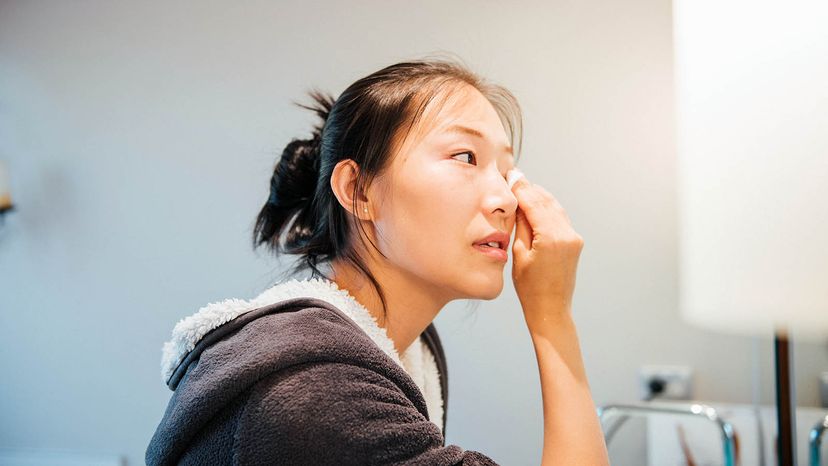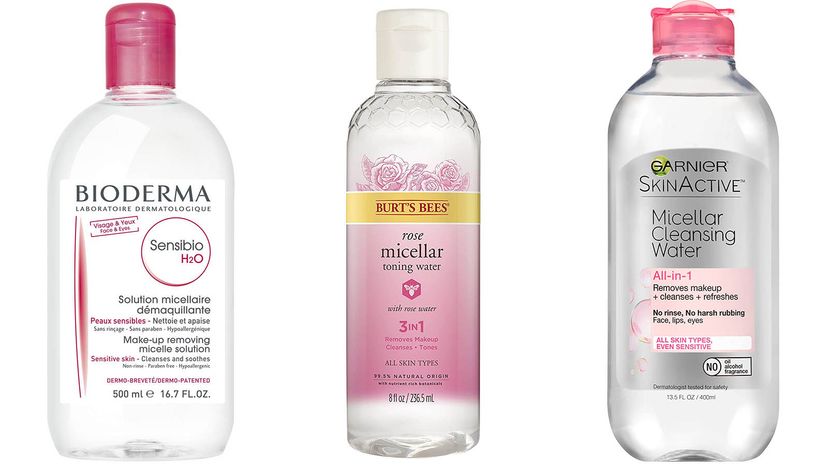With hard water not nearly as much of an issue in the United States as it is in Paris, it's the convenience factor that's winning over a lot of users. Micellar water is praised by models and fitness instructors who want to mop their faces quickly between activities, and people who travel frequently who don't have access to water to refresh before meetings.
Micellar water is promoted for all skin types, but Reese cautions against it for people with acne. (It made her acne-prone client break out.) "It leaves a film, a residue on the skin for hydration. So, if you're already acne prone, blackhead prone, have cystic acne or clogged pores, then that potentially could cause you to have breakouts," she says. "That's what it was doing to my client."
People who wear heavy makeup or waterproof mascara may also need to follow up with a separate cleanser or makeup remover. But for people with dry skin and small pores, micellar water should be fine, she says.
If you do use choose to use micellar water, Reese recommends not substituting it for every face washing. It's best to use it in the morning "because you are mostly bare faced," she says. "I wouldn't use it at night because I'd be concerned that it wouldn't remove makeup completely."

